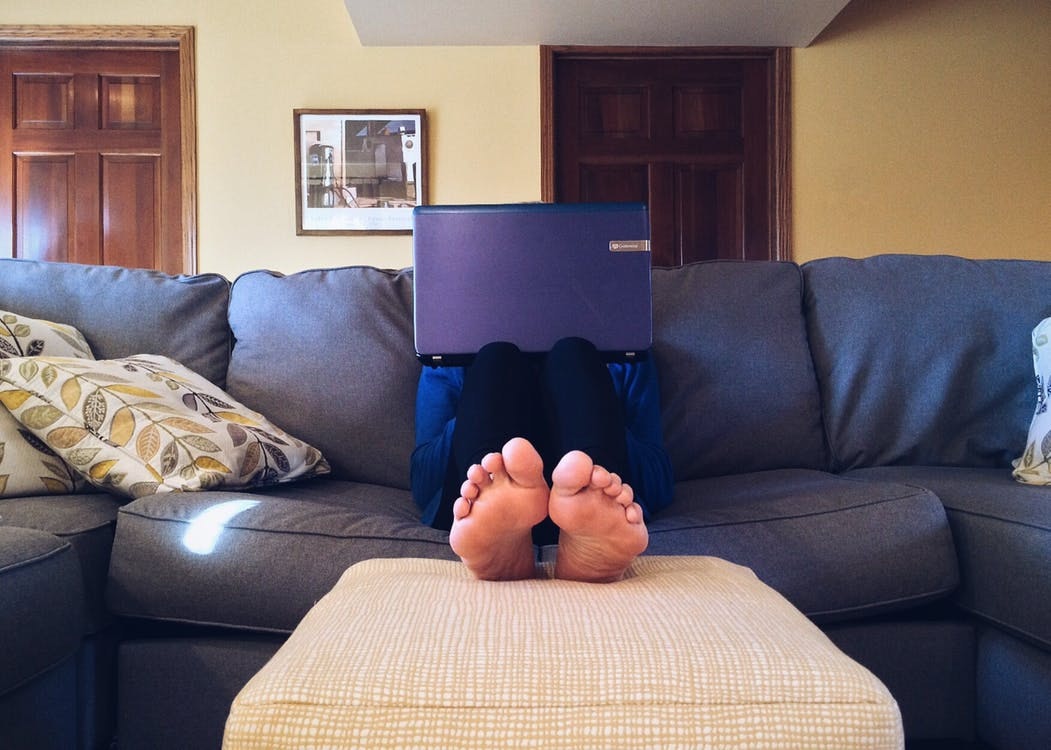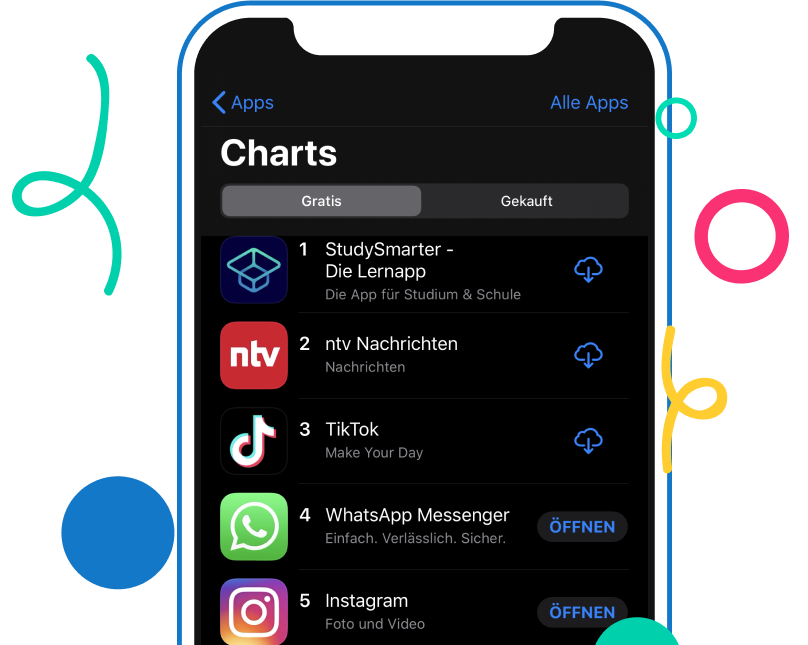Work-Life Balance – Definition and Meaning
I remember when I was in school (and I didn’t even particularly hate it), and my mum would dish out ominous warnings about how life would only get busier later. My response: ‘At least I won’t have homework from work!’ Hah! I couldn’t have been more wrong.
So, what is this work-life balance everyone seems obsessed with? Simply said, it refers to the division of the physical and mental capacities you devote to your studies and work while saving enough time to invest in rest and recreation. In a perfect world, it would mean coming to work and ‘doing your time’ before leaving and enjoying life. And by leaving, I mean not only leaving the workspace but also leaving any thoughts of work.
Tough luck, eh?
As much as we would love to pretend that this ideal world exists, the chances are that most of us do bring our work home. Be that course prep, grading papers, writing emails, or ‘just that one little thing’, work-life balance tends to be blurry in many cases.
Signs of an Unhealthy Work-Life Balance
I am reluctant to admit that my line of work is designed to give you extra homework. Research, preparing tough courses, grading papers, and writing a thesis are only some aspects of it. What makes it worse is the constant stress and drama.
Before I get lost in the nostalgia of my delusional childhood dreams, let’s look at some concrete signs that you may have been subjected to an unhealthy approach to your work-life balance:
- You work and study all the time. Work is a part of life, but it shouldn’t be everything we do. If you cannot carve specific times to relax because there is always something else to do, you need to re-evaluate your obligations and approach to them. Can some of these tasks be postponed? What would happen if you didn’t do them in the evening but simply left them for regular work hours?
- You don’t have time for your friends. If studying or work are common excuses for not meeting your friends, maybe you’re doing something wrong. Your well-being depends on nourishing meaningful relationships, too.
- You don’t have a hobby. Think long and hard about what your hobbies are. If you can’t remember when you last engaged in an activity that brings you pleasure, I have news for you: it’s time to plan some time out and reignite your passion for your interests.
- You check your emails more than social media. To make matters worse, you respond to them immediately. By this, I am referring to your OFF time when emails should be the least of your worries.
- You’ve abandoned self-care and exercise. If your work and studies are so overwhelming that you cannot take some time to take care of yourself, you should reconsider your work-life relationship.
- You’re at everyone’s beck and call. If your boss emails you at a ridiculous time, you jump to do whatever task they’ve set out for you. How about letting them wait until official work hours?
- Even when you have free time, you don’t know what to do. Once you decide to take an hour to rest and relax for the sake of doing nothing, you start to worry about what other work/study-related things you could be doing. Even though you’ve specifically carved out YOU time, it becomes everything else time.

Common Barriers to Work-Life Balance
University and research are more than a full-time job. In most cases, an early academic career is plagued by deadlines, inane assignments, teaching too many courses (you don’t even like), and your personal research project. At least I can proudly say that I love my research, so my workaholic tendencies don’t kill me completely.
Despite our best intentions, sometimes, our unhealthy work-life balance is brought on by a series of internal and external barriers. Barriers to work-life balance include those factors which actively prevent you from creating and maintaining a more reasonable schedule. Some usual suspects include:
- Perfectionism. Sometimes you just have to admit defeat and throw in the towel. Or, less dramatically, call a project finished. However, if you suffer from chronic perfectionism, you may flutter between your tasks without ever being satisfied. The result? Stress.
- Fear of failure. This is a real issue that might keep you tied to your work, especially if you have micromanaging bosses. If you feel that taking time off will somehow set you back, maybe it’s time to reconsider the importance you give to your work. If you’re stuck in a situation where it would be difficult to find a new job, don’t be discouraged. Otherwise, learn to reframe your thinking: give your best during your work time, but once it’s done, call it. On the other hand, if you’re afraid of flunking your exams, introduce regular revisions or use flashcards. The StudySmarter App also has a wealth of explanations, flashcards, and questions to help you monitor your progress.
- Poor planning. It can happen that your work-life balance is suffering because you haven’t thought everything through. If you remember your exams two days before they happen, it’s no surprise you’ll have to pull all-nighters. Learn to schedule your activities in a timely manner to avoid over-working yourself when deadlines approach.
- Disorganised workplace. I’ll be frank, lots of times, it’s not your fault. If you’re working with and for people who suffer from an absolute lack of long-term planning skills, you’ll suffer too. In these situations, you can expect tons of ‘urgent’ emails and phone calls, even when you’re clocked out. And sometimes, you’ll just have to do the task immediately. Which sucks.
- Toxic work-culture. Micromanagement, unjustified tasks, seminars, off-work events, and the demand to be accessible all the time are all detrimental to a healthy work-life balance.

How to Find Your Work-Life Balance: Tips to Help You Survive
I am guilty of many of the above-mentioned signs of an unhealthy work-life balance. Even when I have time off, I somehow can’t keep myself from doing that one little thing. Don’t be like me and incorporate some of these tips into your routine.
- Carve out your YOU time. Make a morning or an evening routine during which you’ll focus on yourself. Meditate, read, exercise (whatever you enjoy), but take this time to step away from your electronics and whatever ‘urgent’ demands the world wants from you.
- Learn to say no. And be assertive about it too. Unless you tell your boss that you cannot take on another obligation, they will keep throwing tasks at you. Until you step up, nothing will change.
- Prioritise your health. You should exercise regularly and find time to cook healthy meals. Seriously, the longer you go on without breaks, the harder your health will take it. Take me as a negative example: Life gets so busy that I don’t take enough breaks. Then I catch a cold and can’t bounce back for weeks. Not. Fun.
- Make time for your friends and family. Call your parents – just because you don’t live at home is not a reason to forget it. Same with friends – even if you study together, you should schedule some get-togethers away from the campus. Spending time with your loved ones is nurturing and relaxing, and it’ll make you happier in the long run.
- Learn about the art of doing nothing. Niksen is a life philosophy that posits we should take some time to enjoy the sweetness of just being without doing something. Start small – it may be scary at first, but simple changes like letting your mind wander, watching a movie, or reading are as good a place to start as any.
- Forego perfectionism. While laudable to some degree, perfectionism, for the most part, only leads to more work and stress. Instead, take a moment to consider that hardly anything in the world is perfect, yet we still love and appreciate it.
- Ask for help. Nobody can do everything. When life starts to look too heavy to handle, learn to ask for help. There is no shame in it, and it is definitely not wrong to receive help and share the burden.
- Ditch multitasking. While it may seem more productive, it is, in fact, not. It takes our brain about 30 minutes to switch between different headspaces to attend to different tasks. Instead of slogging through the transition, work on one task in one go and switch to something else after a break.
- Enjoy your lunch and coffee breaks. Plain and simple, just enjoy them, as the Swedes do!
- Make yourself UNavailable. If that means not responding to emails or texts or not picking up the phone while taking some time off, then so be it. My dad’s rule has always been to switch his phone off as soon as he leaves work. And while all hell may break loose, it’s certainly not his hell to deal with. Some of his totally-unaware-of-boundaries colleagues would, at times, call my mum to mediate, but that’s a whole other problem. Dad, on the other hand, still blatantly refused to deal with it.
- Pursue your hobbies and passions. If your unhealthy work-life balance has made you forget your interests and passions, take this time to rediscover what makes your heart and soul sing, and make sure you’re getting that dose of dopamine regularly. If you’re unsure where to start, maybe it’s time to get into podcasts? There is even one titled ‘Time for Your Hobby!’ 😉
Highlighting the Importance of Work-Life Balance
I may be a workaholic, but lemme tell you, my work is mainly geared towards small luxuries, such as travel. I do put in six to eight weeks of mad pace, but there’s usually a weekend trip (or longer) at the end of that tunnel. During this time, I happily ignore emails and don’t think about work at all, which allows me to get back into it with more energy. Finding your own work-life balance is vital if you don’t want to end up drained and listless.
The perks of being a work-life balancer:
- Your long-term health will improve. The immune system suffers under prolonged periods of stress, even if you can’t see it straight away. Balancing your life ensures you stay healthy.
- Higher productivity. If you take regular breaks, your mind gets a chance to replenish energy, making you all the more productive when you come back.
- You’ll be happy to do the work. Work is all fine and dandy, but if you don’t rest, you’ll likely stop enjoying it. Instead, schedule time off, chill out with friends, and go for walks and adventures. This’ll improve your attitude towards work, too.
- You’ll be more present. Having time off helps you focus better in those times when your attention is needed. On the other hand, having balance will make those timeouts pleasant and less stressful.
- You’ll be happier. And is there, ultimately, anything more important than that? 😊

About Work-Life Balance
At the end of this long discussion riddled with unsolicited personal confessions, let’s reiterate: Striking a delicate balance between work and pleasure is essential for your mental and physical health, overall productivity, and positive attitudes towards your work and studies.
To reap the rewards of a healthy work-life balance, make sure to schedule regular rest and self-care times. Meet with friends and family, watch your favourite shows, or listen to podcasts, audiobooks, or music. Learn to say no and ask for help when you need to, and, most importantly, don’t stress over not working. Work will be there either way.
With that said, I’m off to scroll on Reddit as my personal form of niksen before life hits me again in the morning. Cheers!












